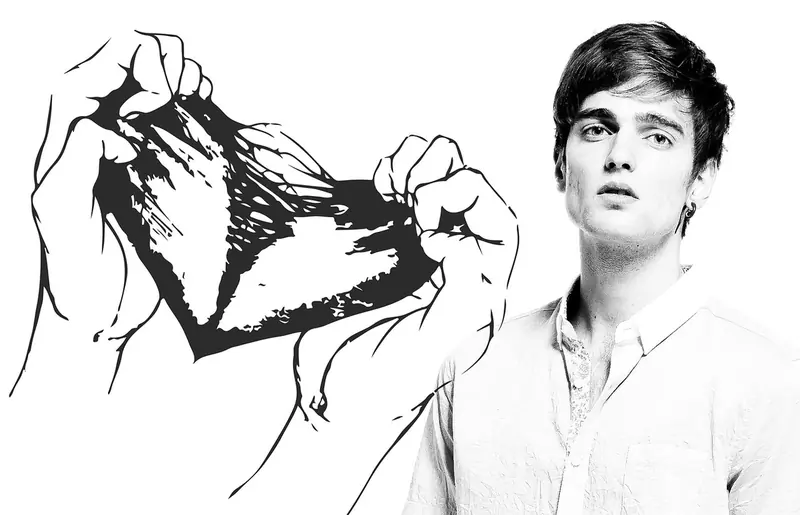
It may sound a bit literary, but people really do die from a broken heart. There’s plenty of real evidence to support this. The broken heart syndrome can be triggered by both physical and emotional stress, and as a team of researchers from the University of Arizona has discovered, it poses a greater risk for men.
Experiencing the loss of a loved one due to a breakup, a dramatic divorce, or death is a traumatic experience for most people. In some cases, the heartache from this loss can lead to real health issues, such as chest pain and shortness of breath. While most of us tend to bounce back relatively quickly from life’s tragedies, for some, broken heart syndrome can be fatal. And within this group, men are twice as likely to be affected as women.
This condition, officially known as takotsubo cardiomyopathy, is usually the result of extreme emotional stress. However, it can also be triggered by physical stress, such as surgery or a stroke.
In any case, when the body is subjected to sudden stress, it releases a flood of stress hormones, such as cortisol and adrenaline. These hormones put pressure on the heart, causing its main pumping chamber to change shape (it resembles a Japanese octopus trap called a takotsubo, which is where the name comes from). This alteration complicates the heart’s normal functioning, as reported by IFLScience.
Previous studies suggested that women experience broken heart syndrome more frequently than men. Researchers also believed that in many cases, those affected recover quickly. However, recent findings have revealed that this is not always the case.
What Did the Scientists Discover?
To learn more about the progression of this condition, the research team analyzed data from nearly 200,000 adult Americans hospitalized with takotsubo cardiomyopathy between 2016 and 2020.
Initially, the scientists confirmed previous findings that women suffer from this condition more often than men, with broken heart syndrome identified in 83 percent of female participants. However, the analysis also revealed a completely different, previously unknown trend related to age.
“It has been previously found that the incidence of takotsubo cardiomyopathy increases with age and typically occurs after a stressful situation, whether emotional or physical. Our study showed a sharp increase in incidence among the age group of 46 to 60 compared to those aged 31 to 45, with the older group experiencing rates 2.6 to 3.25 times higher,” the researchers wrote in their report.
The authors of the study believe that this sudden rise may be due to a combination of factors, such as stress levels, hormonal changes, fluctuations in alcohol consumption, smoking, or inadequate management of conditions like hypertension and hyperlipidemia.
The team noted, “This new age-related finding has important clinical implications. It could serve as a useful tool for distinguishing acute coronary syndrome from takotsubo cardiomyopathy, aiding in early diagnosis among older adults.”
But perhaps the most surprising result of the study was the discovery that men are twice as likely to die from broken heart syndrome compared to women. The reasons for this remain unclear and may be linked to common triggers that lead to this condition in many men.
Dr. Mohammad Movahhed, the lead author of the study, suggested that men may find it harder to recover from sudden broken heart syndrome because they often lack the social support that could help them cope with stress.
The team believes that further research on broken heart syndrome will be necessary to confirm these findings and develop effective treatment strategies for patients.
The conclusions of the study were published in The Journal of the American Heart Association.

